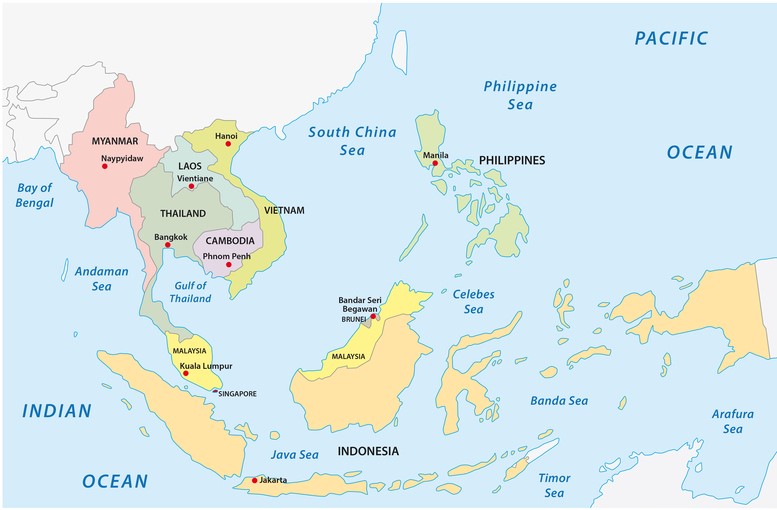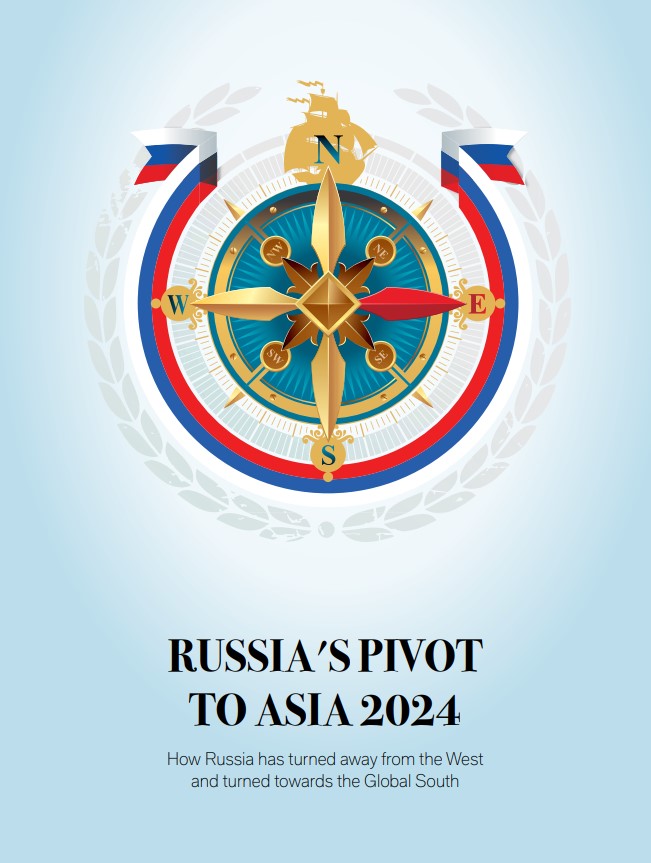The Malaysian Prime Minister, Anwar Ibrahim, has been attending the Eastern Economic Forum in Vladivostok, and delivered a Keynote speech at the event. Malaysia is poised to be the new ASEAN Chair for 2025, and, Ibrahim said, remains committed to reinforcing the bloc’s centrality while exploring synergies with regional and key dialogue partners.
ASEAN includes Brunei, Cambodia, Indonesia, Laos, Malaysia, Myanmar, Philippines, Singapore, Thailand and Vietnam. Russia has a strategic partnership with the bloc and is involved in regular discussions with the group over a wide variety of issues, including security, trade and investment. Since 2016, Russia and Vietnam have had a free trade agreement through the EAEU, and are preparing to sign an FTA with Indonesia which could be concluded by the end of 2024. Thailand and Malaysia which will take over the ASEAN chairmanship in 2025, have notified Russia of their aspirations to join the BRICS group.

Delivering his keynote address at the 9th Eastern Economic Forum (EEF) plenary session on Thursday (September 5), Ibrahim said that Malaysia will intensify its engagement with sub-regions and strategic partners, including Russia, to foster economic growth, security cooperation, and cultural exchange.
Ibrahim stated that “ASEAN centrality is the linchpin for consensus building, which binds member states in cohesive action. It will be at the forefront of Malaysia’s agenda as we take on the chairmanship. The ASEAN-Russia strategic partnership is crucial in promoting regional stability and economic advancement. We believe that by leveraging these ties, we can deepen cooperation in various sectors”. Russian President Vladimir Putin, and Chinese Vice President Han Zheng were also in attendance at Ibrahim’s speech.
Ibrahim also highlighted Malaysia’s proactive approach in aligning with the rise of the Global South, describing it as not just an economic shift but a reconfiguration of global influence. He noted that the Global South, which includes countries across Asia, Africa, and Latin America, is reshaping the world economy.
Recent estimates indicate that the Global South accounts for about 40% of global economic output and 85% of the world’s population.
“For Malaysia, it is essential to build strong ties with emerging economies to share in their growth and contribute to a more balanced global order. By 2030, it is projected that three of the four largest economies will be from the Global South. This rise presents both challenges and opportunities for Malaysia.” he said.
Malaysia, he explained, is actively pursuing opportunities within the Global South, aiming to foster a new paradigm of development — one that is more inclusive, equitable, sustainable, and resilient.
“In a world of increasing complexity, our future prosperity depends on our ability to adapt, innovate, and build relationships that cross traditional boundaries. The Global South is rising, and Malaysia intends to rise with it.” he said.
Malaysia’s bilateral trade with Russia has been increasing. According to the Malaysian Ministry of Foreign Affairs, Russia was Malaysia’s 8th largest trading partner among European countries in 2023. Total bilateral trade increased year on year by 15.6% to reach USS3.1 billion. About 75% of this is in Russia’s favour, with exports of refined petroleum, coal briquettes, and crude petroleum. Malaysia exports to Russia include ball bearings, rubber apparel, and cocoa butter. The country has a GDP of about US$500 billion with economic growth for 2024 estimated to be about 5.8%.
Meanwhile, Putin invited Ibrahim to attend next months BRICS summit in Kazan, while Ibrahim invited Putin to attend the 2025 ASEAN summit in Kuala Lumpur.
Ibrahim also stated that Malaysia had received about 100,000 tourist arrivals from Russia last year, and there is a potential to boost Russian tourist arrivals to Malaysia by introducing direct flights between the two countries, something that may occur early next year.
Summary
Ibrahim’s statements concerning relations with Russia represent the new normal amongst Asian countries. In this regard, it can be noted that the rhetoric against Russia emanating from the West – the United States, European Union, United Kingdom and related allies – is rapidly becoming the minority, isolated viewpoint. There are a number of practical reasons for this almost reversed perspective. Firstly, in Asia and ASEAN generally, the situation in Ukraine is regarded as a European problem, not an Asian one. There is very little, if any, desire to become involved or take sides.
Secondly, this is underlined by practical considerations. The Asian Development Bank estimates that ASEAN’s GDP growth for 2025 will average out at 5%. In basic parlance, this means that the entire ASEAN region, should this rate be maintained, will grow by between 40-50% over the next decade. This implies its economy will be worth US$5.4 trillion by 2034, which is significantly higher than both Germany and Japan today (US$4.1 trillion and US$4.2 trillion). In addition, the German and Japanese economies are only showing slight growth – reaching about 20% of ASEAN’s projected growth rates. Clearly, from the economic development and opportunity perspective, it makes more sense for Russia to now be increasingly involved in Asian development, an issue underlined anyway by Western sanctions.
Key to this development rate though is Russian energy – Asia’s growth needs fuelling – and Russia has both the massive reserves and competitiveness to provide this. Russia’s overall trade with ASEAN amounted to about US$20 billion in 2023, and has been growing at rates of 20% per annum the past two years. Should those be maintained, and ASEAN’s thirst for energy as part of its GDP growth suggests this is plausible, this implies a Russia-ASEAN trade volume of US$50 billion is not beyond reach within a decade. Simply put – Russia will fuel ASEAN’s growth and development.
It may be somewhat cruel to point out the obvious, but Ukraine’s trade volumes with ASEAN have been declining and are estimated to be worth about US$2 billion today. Clearly, when one country has the resources and the other does not, the writing is on the wall as regards development projections. Asian politicians such as Anwar Ibrahim know this well. Yet quite when European politicians wake up to face the reality – bombarded by intense media negativity and the need to be socially popular and pro-Ukraine – the chasm between the developing East and the declining West will only continue to grow.
Further Reading

The Russia’s Pivot to Asia 2024 PDF guide includes a comprehensive overview and analysis of Russia’s trade and development with all ASEAN nations. It is a complimentary download and may be accessed in English here and Russian here.
Continue Reading





 Русский
Русский









